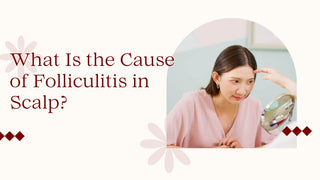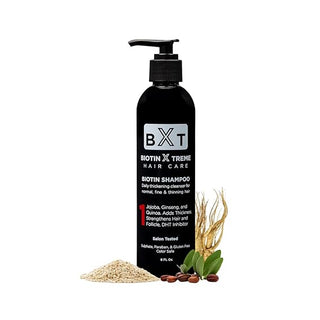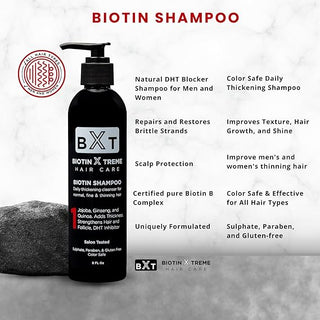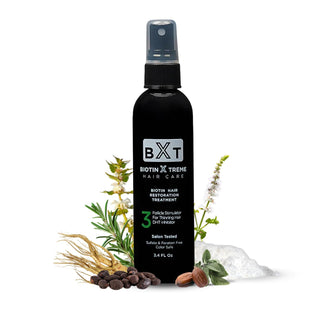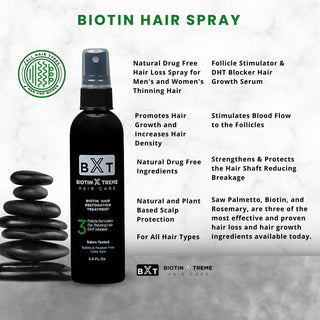Scalp Folliculitis: What You Should Know? What Causes Inflammation of Follicles?
Scalp folliculitis appears to be clusters of small red bumps that are often mistaken for acne. However, it is an inflammatory condition. It affects the hair follicles on the scalp. The sores can be itchy, painful, and uncomfortable.
Though scalp folliculitis is not a severe medical condition, leaving it without treatment may increase the size of the blisters and the size of the affected area.
The follicle can become infected and become extremely sensitive. So, what are the causes behind the scalp folliculitis?
What causes scalp folliculitis?
Folliculitis is a comprehensive term. It covers all the conditions that cause inflammation of hair follicles. However, folliculitis can be of various types. Hence, it depends on the causes behind it. They are as follows:
Bacterial infections
Bacteria are the common reason that causes hair folliculitis. Staphylococcus aureus is most often the main bacteria behind scalp folliculitis. The bacteria are usually detected inside the nose or on the skin of human beings. As the growth of the bacteria increases, it may enter the follicles through tiny breaks in the skin and cause scalp inflammation.
Fungal infections
Fungal and yeast infections can cause sores, redness, and scalp itchiness. Malassezia is a common fungal infection that contributes to scalp folliculitis. Malassezia is a normal part of the skin microbiota, but its overgrowth can cause inflammation and irritation.
Poor Hygiene
If someone with oily skin washes hair infrequently, dirt, oil, and sweat build up on the base of hair follicles. It can lead to extreme discomfort for the person suffering from such a condition as caused due to irritation and inflammation.
Irritation of the scalp’s skin
Excessive sweating resulting from the use of harsh hair products and friction from helmets and hats can irritate hair follicles and create bumps at the base of the hairline.
Poor immune system
People with weak immune systems are prone to developing scalp folliculitis, including those suffering from diabetes or other immuno-deficiency disorders. Hence, their health conditions make them more prone to develop scalp folliculitis.
While these are the primary causes of hair folliculitis, there are certain things that can further damage the hair follicles. They are:
- Shaving hair frequently.
- Scratching and rubbing hair often
- Making tight ponytails and braids
- Using a lot of hair products that contain harmful chemicals
- Wearing helmets or hats for too long
What are the symptoms of hair folliculitis?
The symptoms can be different for different people. It can be mild for some, while for others the symptoms can be severe. However, some of the most common symptoms include:
Small inflammation: Acne-like small inflamed red-colored bumps may appear. Now, that can be painful and itchy.
Itchiness: The affected areas can be extremely itchy, and the person suffering from it often scratches the area, intensifying the condition.
Tenderness: the sores can be tender and painful to touch.
Hair loss: Severe cases of hair folliculitis that stretch for a prolonged time can lead to hair loss in the affected areas.
Fluid Drainage: The bumps when inflamed may burst open and release pus that may lead to crusting of the scalp.
Is folliculitis infectious?
Folliculitis is not an infectious condition. But the bacteria and fungus that affect the hair follicles may spread to other people if they use the same comb, razor, towels, and other personal hygiene products.
How do you treat scalp folliculitis?
Treatment for scalp folliculitis depends on the severity of the condition and the underlying cause. Mild conditions are manageable with over-the-counter medicines, shampoos, and proper hygiene practices. But it is always advisable to consult a physician and follow the treatments suggested.
You will need medical intervention if the condition is severe and recurrent. Usually, a physician might suggest medications such as the following:
Antibiotics: Oral antibiotics are a common treatment prescribed by a medical practitioner to treat bacterial growth. Antibiotics also help to control inflammation and remove bacteria.
Antifungal medicines: Where the root cause of folliculitis is yeast or fungus, antifungal medicines, shampoos, or creams may be prescribed by the medical professional.
Avoid irritating substances: Those suffering from hair folliculitis must avoid irritants like harsh hair products, do not use hair products with parabens or sulphates, excessive heat, and friction that can flare up the condition.
Practicing better hygiene: Cleaning the scalp regularly and gently has its benefits. By doing so, you can keep your scalp safe from bacterial and fungal infections. Using mild biotin based shampoos and conditioners is a healthy practice
Avoid scratching: As the areas feel itchy, it is hard to resist scratching. However, you must avoid scratching as it will worsen the condition. So, avoid scratching the area as much as possible.
Last but not least, Scalp folliculitis is a common condition, and many people suffer from it. With the proper treatment, it is possible to manage the condition and get back a healthy scalp. Using natural biotin shampoo from Biotin Xtreme Hair Care is always a natural healing process for healthy hair hygiene.
